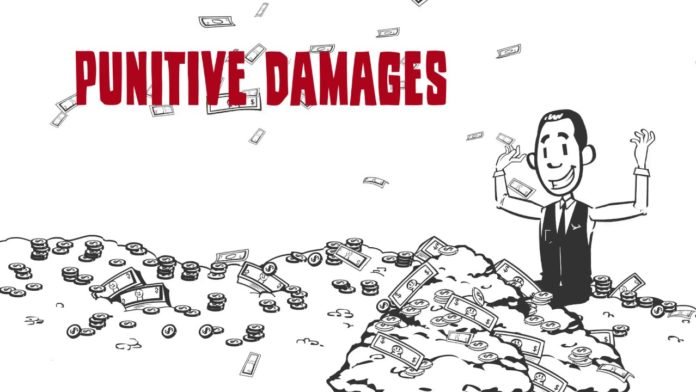In a suit filed by Super Cassettes Industries Pvt. Ltd (T Series/Plaintiff) against Sun Cable Network (a Chattisgarh based cable operator) seeking permanent injunction for restraining infringement of copyright, damages and rendition of accounts, the Tiz Hazari Court, Delhi vide ex-parte judgement dated November 12, 2018 awarded punitive damages of INR 20,00,000/- (Rupees Twenty Lacs only) to T Series and decreed a permanent injunction against the defendant from exploiting the copyrighted works of T Series. The Court also decreed a mandatory injunction in favour of T Series against the defendant directing the defendant to deliver and hand over to T Series, all infringing tapes, copies and negatives etc bearing the copyrighted materials of T Series; As per reports, a similar order was obtained by T Series against Brij Network (a Rajasthan based operator) as well. [Read Judgement]
The Plaintiff’s case was that Sun Cable Network which carries on the business of providing cable television services to various subscribers under the name “THE SUN MUSIC BOX” and “THE SUN DARSHAN” has on several occasions shown cinematograph films/ movies which are mostly pirated including those from the Plaintiff’s copyrighted works and without obtaining a license from the Plaintiff. T Series claimed that the said services are merely directed to enhance viewership amongst defendant’s subscribers and also to increase revenue generated though advertising and that such unlicensed and unauthorized use of plaintiff’s work by defendant on its cable television network amounted to infringement of plaintiff’s copyright, causing enormous loss of revenue to the plaintiff and resulting in generation of revenue for the defendant at the expense of plaintiff’s statutory rights.
T Series submitted recordings of various detected instances of infringement by the Defendant of copyrighted works of T Series. Notices sent by T Series to the defendants were in vain and the Defendant’s action was causing severe and irreparable damage to the plaintiff and it was suffering direct loss on account of nonpayment of license fee by the defendant for the entire duration during which the defendant had broadcast the plaintiff’s work in an unauthorized manner.
The suit was heard ex-parte since the defendant failed to remain present or file its written statement despite summons being served.
While granting the punitive damages of INR 20 lacs in Plaintiff’s favour, the Court observed
“It is established on record that the plaintiff invests massive amounts to acquire copyrights from the authors and owner thereof and the same runs into several crores of rupees. It is stated that other media and entertainment channels which regularly obtain license, the fee runs into several lakhs of rupees. The usage of the plaintiff company’s repertoire by the defendant was detected and has been proved; therefore, damages are claimed in the suit. The counsel for the plaintiff has submitted that the damages claimed by the plaintiff company are nominal as compared to the license fees actually paid by other broadcasting organizations.
With regard to the relief of damages as claimed by the plaintiff Hon’ble High Court in various cases filed by the present plaintiff, has previously granted both exemplary and punitive damages against infringers in ex parte matters of similar nature.
In Super Cassettes Industries Pvt. Ltd. Vs Ragany Cable TV Pvt. Ltd. CS (COMM) 1222/2016, dated 22.05.2017, Hon’ble High Court granted damages of Rs. 21 Lakhs. Similar damages were granted in case titled Super Cassettes Industries Ltd. CS (OS) 1882/2014, dated 16.05.2017 and Super Cassettes Industries Ltd. Vs TG Angles India Pvt. Ltd., dated 20.04.2017, by Hon’ble High Court.”
The division bench of the Delhi High Court in the case of Hindustan Unilver Ltd vs Reckitt Benckiser India Limited had declared that while awarding punitive damages, the damages need to be proved. Further, the punitive element of the damages should follow the damages assessed otherwise (or general) damages; exemplary damages can be awarded only if the Court is “satisfied that the punitive or exemplary element is not sufficiently met within the figure which they have arrived at for the plaintiff’s solatium”. In other words, punitive damages should invariably follow the award of general damages (by that the Court meant that it could be an element in the determination of damages, or a separate head altogether, but never completely without determination of general damages).
As explained by Prashant Reddy in this article, Delhi Courts have been granting punitive damages citing Time Incorporated v. Lokesh Srivastava which was overruled in the HUL vs Reckitt Benckiser case simply ignoring a binding precedent of a larger bench.
Considering the Tiz Hazari judgement was passed ex-parte, I am not sure if the punitive damages awarded have been proved and are sustainable and in line with the principle laid down in the HUL case.
Image source: here













